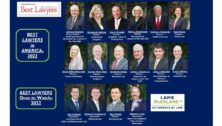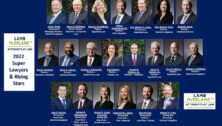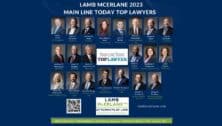Breaking News: Pennsylvania Has Enacted a New Non-Compete Law in Healthcare
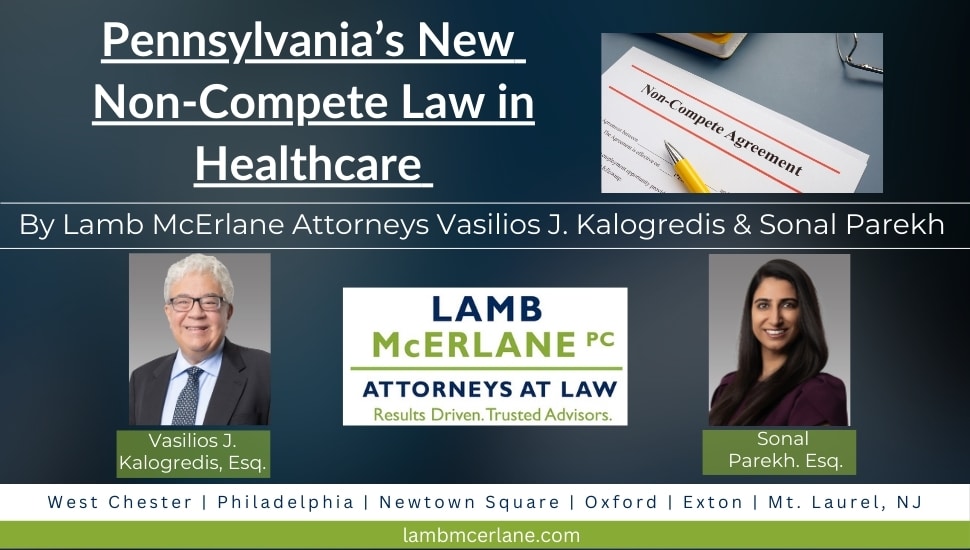
On Jul. 17, 2024, House Bill 1633 (HB 1633), which prohibits the enforcement of noncompete covenants entered into by healthcare practitioners and employers, was signed by Governor Josh Shapiro. The Fair Contracting for Health Care Practitioners Act (the “Act”) represents the first law limiting noncompetes in the healthcare industry in Pennsylvania.
Pursuant to the Act, a noncompete covenant is an agreement (or a provision thereof) entered into between an employer and a healthcare practitioner in Pennsylvania that has the effect of impeding the ability of the healthcare practitioner to continue treating patients or accepting new patients, either practicing independently or in the employment of a competing employer, after the term of employment.
The Act makes noncompete covenants entered into after its effective date (Jan. 1, 2025) void and unenforceable as contrary to public policy. The Act provides an exception to allow employers to enforce a noncompete covenant if the length of the time frame of the noncompete covenant is no more than one year, provided that the healthcare practitioner was not dismissed by the employer. Interestingly, the Act does not contain any geographical restriction with respect to noncompete covenants at all. This is curious given the statute’s stated rationale: the concern of noncompete clauses that stretch over broad geographic regions.
The Act varies significantly from the initial language of HB 1633, as introduced on Aug. 29, 2023, and subsequent amendments thereto. The Act defines a healthcare practitioner to include only licensed physicians (MD/DO), certified registered nurse anesthetists (CRNA), certified registered nurse practitioners (CRNP), and physician assistants (PA). The Act does not apply to any other “individual authorized to practice some component of the healing arts” as provided for in the Health Care Facilities Act.
It is important to note that the Act does not make clear who qualifies as an employer and whether it applies to healthcare practitioners working as independent contractors. In other words, the Act does not specify whether the term “employer” is limited to an entity in an employer-employee relationship or is meant to refer to an entity contracting with a healthcare practitioner in any fashion.
Importantly, the Act makes clear that it does not prohibit the enforcement of a contract provision that allows an employer to recover reasonable expenses from a healthcare practitioner if the expenses are: (i) directly attributable to the healthcare practitioner and accrued within the three years prior to separation (unless separation is caused by dismissal of the healthcare practitioner); (ii) related to relocation, training and establishment of a patient base; and (iii) amortized over a period of up to five years from the date of separation by the healthcare practitioner. The Act also does not prohibit noncompete covenants entered into with a healthcare practitioner with an interest in a business entity as a direct result of: (x) the sale of an ownership interest or all or substantially all of the assets of the business entity; (y) a transaction resulting in the sale, transfer, or other disposition of the control of the business entity (including by merger or consolidation); or (z) the healthcare practitioner’s receipt of an ownership interest in the business entity. In these cases, the healthcare practitioner must be a party to the sale, transfer, or other disposition noted therein.
The Act requires that, within 90 days of a healthcare practitioner parting from an employer, the employer must notify the healthcare practitioner’s patients (that were seen within the past year and had an ongoing outpatient relationship for two or more years) of: (i) the healthcare practitioner’s departure; (ii) how the patient may transfer the patient’s health records to a healthcare practitioner other than with the employer, if the patient so chooses; and (iii) that the patient may be assigned to a new healthcare practitioner within the existing employer if the patient chooses to continue receiving care from the employer. Notably, there is no explicit requirement to notify the patient of where the healthcare practitioner will be rendering services in the future, unlike in prior versions of HB 1633.
The Act will take effect Jan. 1, 2025. This means any noncompete covenant entered into after this date is unenforceable (so long as it does not meet a permitted exception). However, any noncompete entered into prior to Jan. 1, 2025, would not be subject to the provisions of this Act. Accordingly, healthcare practitioners (i.e., physicians, CRNPs, CRNAs, and PAs) and employers should take this into account in deciding when to enter into new contracts.
This article is written with a specific focus on the Act as it relates to noncompete covenants in the Commonwealth of Pennsylvania. We have previously published articles regarding the Federal Trade Commission’s (FTC) final rule prohibiting non-compete agreements (Final Rule), which takes effect Sept. 4, 2024. Because the Final Rule (if upheld) applies to workers in all states, it is currently unclear how the Final Rule and the Act will interrelate. Notably, the Final Rule permits exceptions from the noncompete ban for (i) senior executives who already have a noncompete in place and (ii) nonprofit companies, which includes many of the hospitals and some of the biggest health insurers in the United States. The Act, on the other hand, does not provide exceptions for, but rather remains silent on, these categories.
It will be interesting to see how the bans on noncompetes unfold as the FTC’s Final Rule faces a challenge to its constitutionality in the Eastern District of Pennsylvania case: ATS Tree Services, LLC v. Federal Trade Commission, which is set to be decided in the next week. We will continue to monitor the status of these legal changes and provide periodic updates throughout. Stay tuned for more.
If you have any questions regarding noncompetes, compliance, or other health law matters, please feel free to contact Vasilios J. (Bill) Kalogredis, Esq. or Sonal Parekh, Esq. at Lamb McErlane PC. Lamb McErlane PC is a full-service regional law firm based in West Chester, with additional offices in Philadelphia, Newtown Square, Oxford, Exton, and Mt. Laurel, N.J. The firm has 48 attorneys and has built a reputation for delivering the highest caliber of legal service in an environment focused on personal attention and results.
_______________________________________________
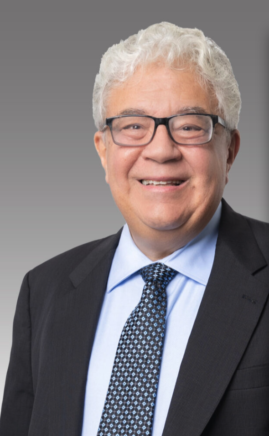
Vasilios J. (Bill) Kalogredis, Esq. has been advising physicians, dentists, and other healthcare professionals and their businesses as to contractual, regulatory and transactional matters for almost 50 years. He is Chairman of Lamb McErlane PC’s Health Law Department. Bill can be reached by email at bkalogredis@lambmcerlane.com or by phone at 610-701-4402.

Sonal Parekh, Esq., is an associate at Lamb McErlane PC who focuses on healthcare transactional matters and a broad range of healthcare regulatory-related issues on behalf of healthcare systems, physicians, dentists, and other healthcare providers, and is a pharmacist by education and training. Sonal can be reached by email at sparekh@lambmcerlane.com or by phone at 610-701-4416.
*This alert is for educational purposes only and is not intended to be legal advice. Should you require legal advice on this topic or have any questions or concerns, please contact Vasilios J. (Bill) Kalogredis, Esq. or Sonal Parekh, Esq.
Connect With Your Community
Subscribe to stay informed!
"*" indicates required fields


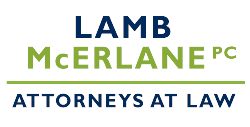








































![95000-1023_ACJ_BannerAd[1]](https://vista.today/wp-content/uploads/2023/03/95000-1023_ACJ_BannerAd1.jpg)






